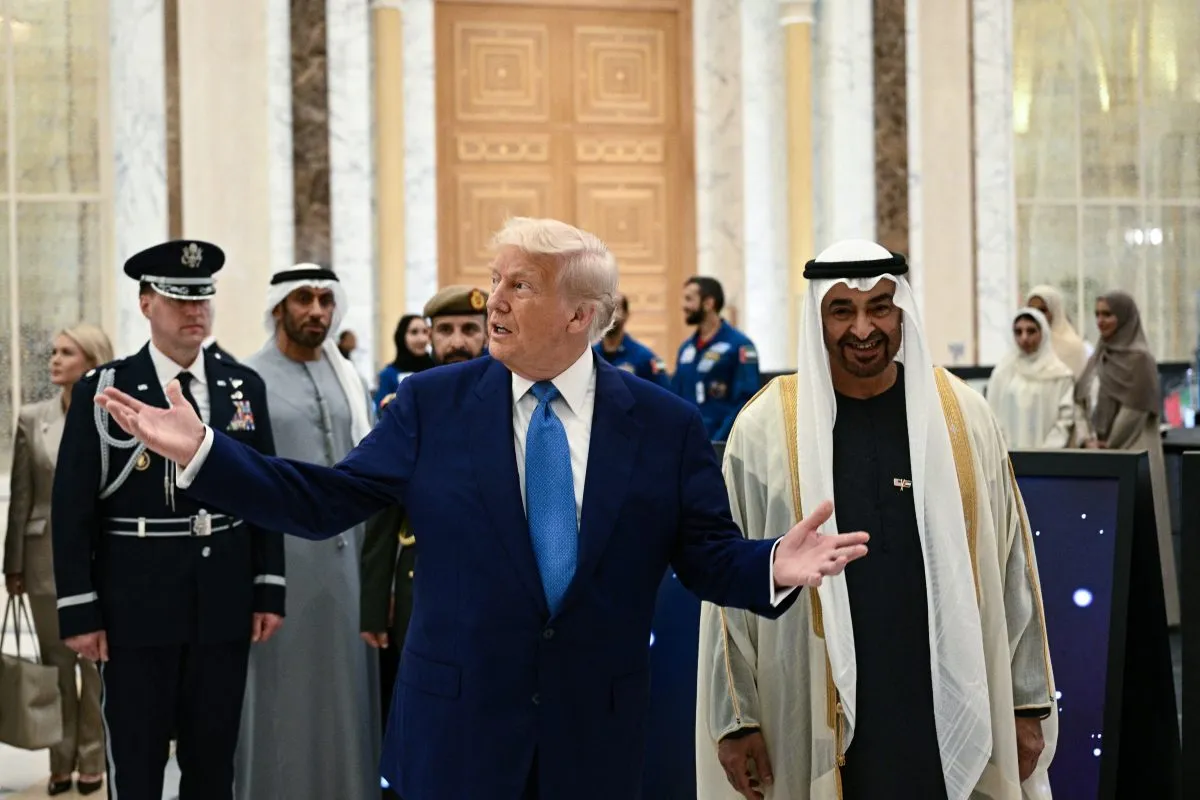At first glance, the first months of the second Trump administration appear less than promising for US engagement with Africa, particularly around efforts to strengthen energy accesss.
Just days after Donald Trump re-entered office in January, he allowed his cost-cutting tsar Elon Musk to put the US Agency for International Development “into the wood chipper”. While some humanitarian spending will be allowed to continue, Power Africa, a US-led initiative that claimed to have helped connect over 37 million homes to electricity over 12 years, was among the programmes to be unceremoniously axed by the new administration.
Trump also cancelled US loans for South Africa’s ‘Just Energy Transition Partnership’, in which donor countries have agreed to help fund the country’s switch away from coal power, amid strained relations with Pretoria. Trump and his allies have amplified conspiracy theories around a “genocide” supposedly taking place against the country’s white population.
African countries are also in line to be hard hit by Trump’s tariff policies. If these are implemented in full after the 90-day pause following the initial tariff announcement in April, then Lesotho will be the hardest hit country in the world. The mountain kingdom, a country Trump claimed “nobody has ever heard of” during an address to Congress, faces a 50% tariff from July unless it can negotiate an exemption.
While the picture appears bleak, the practical impact that US cuts will make to Africa’s efforts to strengthen its energy infrastructure is not yet clear. The cuts could even provide a much-needed push for the continent to diversify its sources of funding. And the idea that the United States is turning its back on the continent is not entirely accurate. In fact, many figures in the new administration appear eager to remain important players in the African energy arena.
Wielding the axe
The idea that the US should support efforts to strengthen energy access in Africa has never been controversial under previous administrations, even during Trump’s first term.
Now, however, the second Trump administration has introduced an “incredible level of uncertainty,” says Katie Auth, policy director at the non-profit Energy for Growth Hub and a former executive at USAID and Power Africa. She points to the expected shutdown of the Millennium Challenge Corporation, an US government agency that provides grants to countries that commit to economic reform programmes.
MCC staff were told in late April that most positions at the agency would be terminated. Much like USAID, staffing levels at the MCC look set to drop to the minimum level allowed by law.
“It’s not clear yet to anyone in Washington, DC, let alone in Africa, what the US approach to development finance is going to be,” warns Auth. “You’re seeing a lot of project developers, African partners, just waiting to see how this plays out.”
She highlights an upcoming decision on the future of the US Development Finance Corporation as a key test of the direction of US policy. The DFC, established during the first Trump administration, requires reauthorisation by Congress later this year. While there is bipartisan support for allowing the agency to continue – and, in fact, the Trump administration wants to expand its role – Auth suggests that changes in the DFC’s mandate could be to Africa’s detriment.
“It’s not clear to me whether African countries are going to be a priority for the Trump administration,” she says. “That’s one big question that will become clearer as the DFC gets reorganised and reauthorised later this year – are lower-income economies that don’t necessarily have direct linkages to US geopolitical priorities going to get attention from the US government?”
One possibility is that a revamped DFC will focus more on investing in Africa’s critical mineral supply chains. Critical minerals have already been a priority for the DFC under both the first Trump and the Biden administrations, with a series of investments to strengthen infrastructure along the Lobito Corridor linking Angola to DR Congo and Zambia.
There is also support within Republican circles for transforming the DFC into something resembling a traditional sovereign wealth fund, rather than a development finance institution. An executive order signed by Trump in February authorises the DFC to invest in domestic critical minerals production, suggesting that the agency’s focus will shift away from emerging markets.
Beyond aid
As Africa looks to finally close its energy access gap, with the recently launched ‘Mission 300’ initiative setting an ambitious agenda to connect 300 million people by 2030, the cuts to US funding are not the continent’s only headache.
“It is not only the gap left by US programmes that will need to be filled, but also a potentially significant reduction of European public funding of Africa’s renewable energy projects,” says Mostefa Ouki, senior research fellow at the Oxford Institute for Energy Studies.
“Private sector funding of energy projects will play a more dominant role. However, this will be very challenging for several African economies that cannot put forward bankable energy projects.”
“The recent changes in US and European development aid funding and their adverse impact on the financing of clean energy projects in Africa is another wake up call for African policymakers to undertake adequate reforms of their energy sector investment environment and to reduce reliance on shrinking development aid.”
“There’s some gaps in the international development finance market which are hitting people hard,” says Alasdair Maclay, managing director at impact invest firm GSG Impact. “We’re seeing organisations reorganise, some organisations close down, some projects close down.”
But Maclay adds that there is now “more urgency” in mobilising financial resources from within the continent. He highlights how pension funds on the continent have traditionally been restricted to highly conservative strategies around buying government bonds and
investing in the local stock market. However, a number of countries are now in the process of implementing reforms.
Nigeria’s pensions regulator announced last month that it wanted pension funds to diversify into other investments, specifically highlighting infrastructure as an asset class that can deliver commercially attractive returns over a long-term period.
Shifting focus
While efforts to attract more private capital from both within and outside the continent for energy infrastructure is undoubtedly vital, it is not likely that the United States will vanish from the continent altogether. The White House is planning a US-Africa Summit for later this year, the first such gathering since 2022.
Meanwhile, US energy secretary Chris Wright pledged at a summit in March that the US would continue to support energy access in Africa, taking a technology-agnostic approach, and would consider the needs of African partners.
One priority is likely to be support for nuclear energy in Africa. Proponents say small modular reactors (SMRs), a nascent technology that allows nuclear energy to be deployed on a smaller scale than in conventional nuclear power stations, are well-suited to African countries such as Ghana and Kenya that are eager to harness nuclear power. US companies are in the lead in commercialising SMRs, making this a natural field for US-Africa cooperation.
There are some signs that US enthusiasm for nuclear technology is influencing other funding organisations. The World Bank is set to approve a change to its lending rules to allow it to support nuclear energy at an executive board meeting next month.
But Auth is among those voicing scepticism that the new administration will prove supportive of renewable energy in Africa. “I’m not convinced that they’re truly open to all technologies,” she says, pointing out that renewables, especially wind, have become politicised in the United States. Trump is “not putting nearly as much emphasis on renewable deals as previous administrations”, says Auth.
Drill, baby, drill
Other figures are much more enthusiastic about how Trump and Wright may reset energy relations with Africa – particularly in fossil fuels.
NJ Ayuk, executive chairman of the African Energy Chamber, an oil and gas industry lobby group, argues that USAID’s “biggest mistake” was to focus excessively on renewables at the expense of other energy sources. “They missed a great opportunity to drive gas development,” he says, highlighting how liquified petroleum gas could play an important role in addressing the continent’s clean cooking problem. “That was a strategic mistake. That was very, very ideological.”
By contrast, he welcomes the Trump administration’s much more positive stance towards fossil fuels. Trump allowed the US Export-Import Bank to reauthorise its $4.7bn loan for the stalled LNG project in Mozambique in March, which should pave the way for TotalEnergies to restart work on the project in the coming months.
Ayuk is also fulsome in his praise for Wright, who was the CEO of a fracking company prior to his appointment. “I think Chris Wright is going to go down as the greatest energy secretary the United States ever had. He has been more engaging, his team has been more engaging, he has embraced Africa more than any US energy secretary I have seen over the last 20 years.”
“We speak the same language, and it is very good for Africans today to see a Western leader that speaks our language.”
Want to continue reading? Subscribe today.
You've read all your free articles for this month! Subscribe now to enjoy full access to our content.
Digital Monthly
£8.00 / month
Receive full unlimited access to our articles, opinions, podcasts and more.
Digital Yearly
£70.00 / year
Our best value offer - save £26 and gain access to all of our digital content for an entire year!

 Sign in with Google
Sign in with Google 



